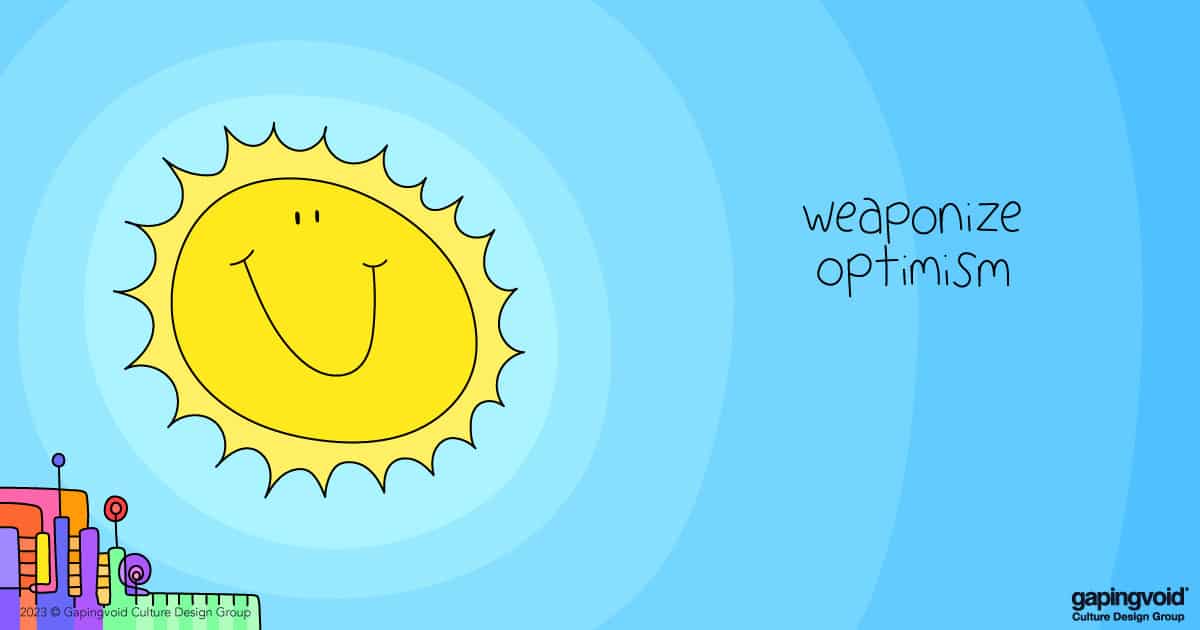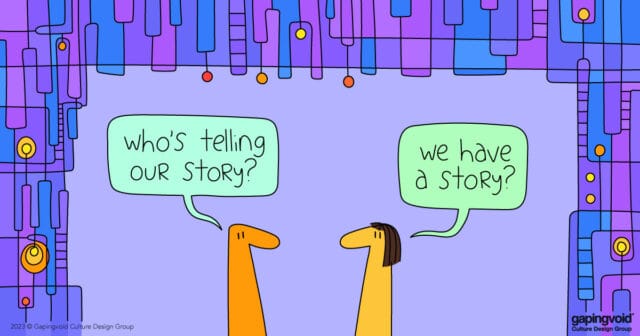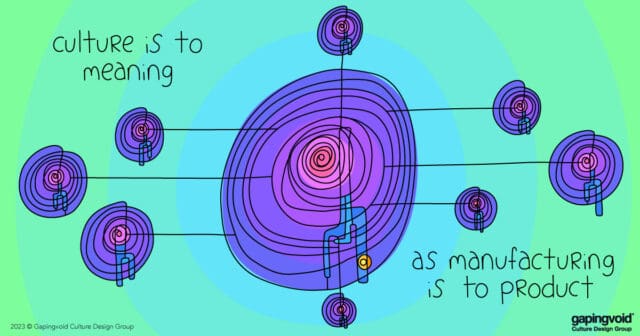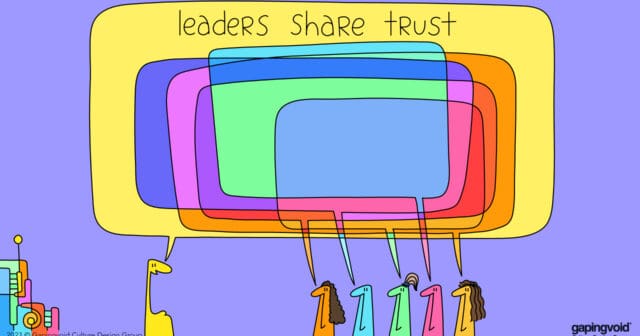
Re. Thanksgiving week.
Every time the last week of November rolls by, there’s a predictable collective wail online from people who don’t like Thanksgiving.
They come in many forms. There’s the “I hate everything the mainstream likes because I’m too cool for school” crowd. There’s the “Europeans are colonizers” crowd. There’s the “My family sucks” crowd. There’s the “My life sucks” crowd. There’s the “Why should we be grateful when there’s climate change or war or [fill in the blank these days]” crowd.
Much of it is warranted – especially this year. The world can be an awful place. But a fair amount of it also boils down to: “I can’t give thanks because I’m not happy.”
The funny thing is, for those of us with this mindset- the more likely scenario is the converse, “I can’t be happy because I’m not grateful.”
A scientist who studies happiness for a living and an old associate of ours, Sean Achor, wrote a book a few years ago called “The Happiness Advantage.” Three big ideas stood out to us from the book:
- That happiness is the main cause of success, not the other way around.
- That happiness is a mindset, not a result of external good things happening.
- That if you’re generally a grateful person, you’re more likely to be happy i.e. more likely to be successful.
There’s many things that contribute to happiness, but according to Achor, (and Harvard Medical) a big driver of it is gratitude. The people who are just glad to be here and grateful for whatever life may have given them (as opposed to obsessing about what life gave to other people and not to them) or those who count their blessings on a regular basis are far happier and likely to be successful than the people who like to sit around and gripe.
As the Happiness Lab podcast pointed out in May 2020, we like to gripe because it makes us feel better short-term, but long-term it doesn’t help us very much. Like everything else, we do it because we like “easy,” and it can make us feel better in the moment. But as a life strategy? It doesn’t work out so well, it appears.
So here’s an idea. Instead of just gathering around the table to give thanks on a single day (which is still a good thing to do), let’s use Thanksgiving to also remind ourselves (to quote the famous UK ad, that “A dog is for life, not just for Christmas.” In other words, that gratitude is best not as a single big holiday event, but something we should look after, cultivate, and practice steadily 365 days a year.



